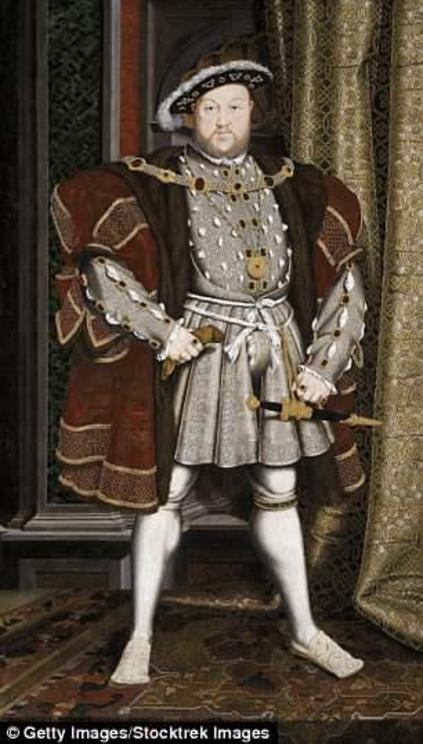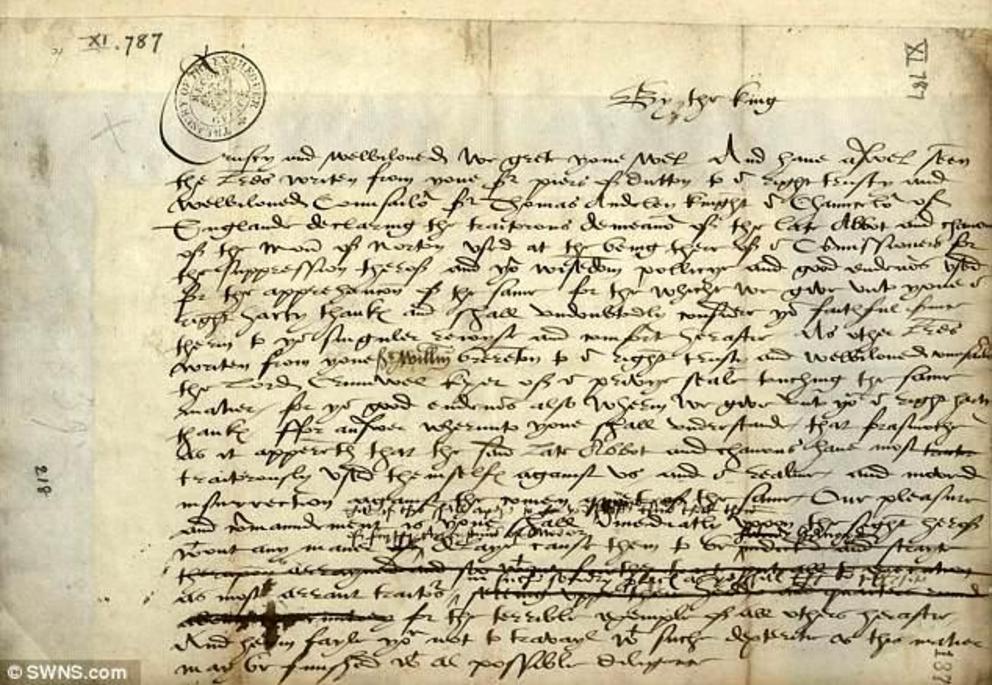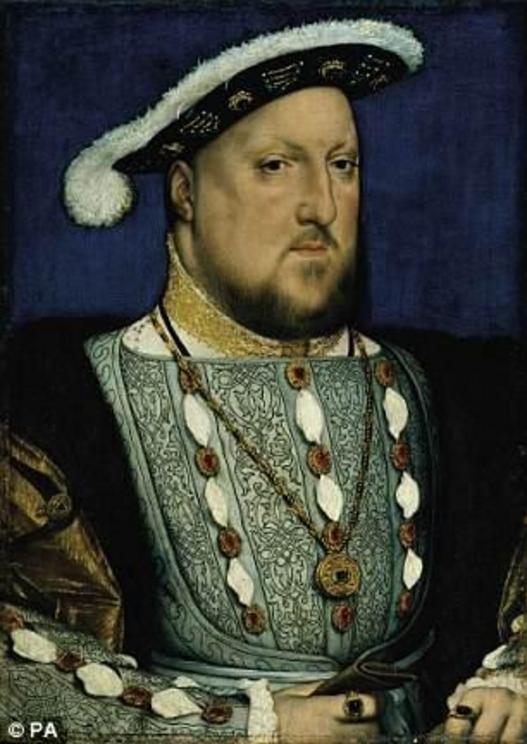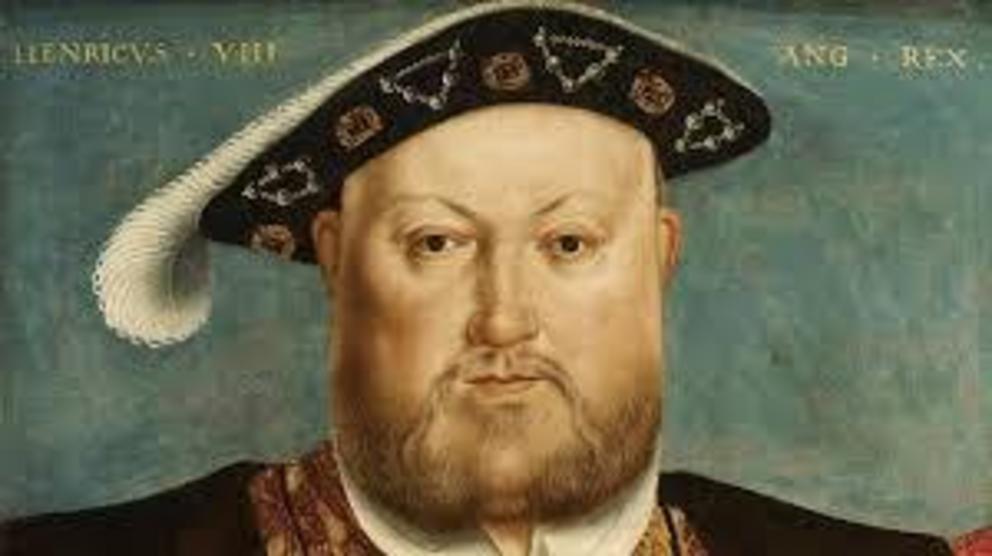Bloodthirsty death notice dictated by Henry VIII . . .
Where he calls for a 16th-Century monk to be hanged, disembowelled and chopped into four with his body parts displayed 'around the country' goes on display.

King Henry was outraged that priests had stopped his men from closing Norton Priory in Runcorn, Cheshire, during the dissolution of the monasteries in 1536
A 16th century death warrant in which King Henry VIII orders an abbot be 'hung drawn and quartered' before deciding he should just be hanged has gone on public display.
The letter is believed to have been dictated by the notoriously temperamental monarch, who then changed his mind and had the words 'drawn and quartered' crossed out.
King Henry was outraged that priests had stopped his men from closing Norton Priory in Runcorn, Cheshire, during the dissolution of the monasteries in 1536.
He demanded the abbot be hanged, disembowelled and then chopped into four pieces with his body parts displayed 'around the country' in a warrant written under dictation from King Henry to a secretary.
It is not known why King Henry changed his mind and crossed out the line.
The letter is set to go on public display from May 5 at Norton Priory Museum.
It will be on loan from the National Archives until the end of August.
The letter will be accompanied by a 16th century silver-gilt reliquary from the Victoria and Albert Museum, which is demonstrative of the wealth of the monasteries at the time.
The objects illustrate the tumultuous story of the dissolution of the monasteries.

The letter (pictured) is believed to have been dictated by the notoriously temperamental monarch, who then changed his mind and had the words 'drawn and quartered' crossed out
Sean Cunningham, head of medieval at the National Archives, said: 'As a king with a reputation for delegation of the routine business of state, this draft signed warrant shows that Henry VIII did, in fact, take a very close interest in events that threatened his power and undermined his sovereignty.
'We can almost hear his outrage as he decides on the most effective response to the news of events at Norton Priory.
'Although ministers like Wolsey and Cromwell were famous for doing most of the bureaucratic moving and shaking on Henry's behalf, the king was educated and intelligent enough to know when and how to bend the system to his will when necessary.'
Frank Hargrave, director of Norton Priory Museum and Gardens, said: 'We are enormously grateful to the National Archives and Victoria and Albert Museum for the loan of the draft letter and stunning reliquary.
'Their loan programmes provide a fantastic vehicle for the display of nationally important artefacts to regional audiences.'
Dr Andrew Abram, from Manchester Metropolitan University, said: 'It is possible that the High Sheriff of Cheshire, Piers Dutton, who reported the resistance at Norton, was deliberately exaggerating the situation and provoking the King to further his own political goals.'

In 1531 Henry detached England, Wales and Ireland from the authority of the Roman Catholic Church
Dr Mel Evans from the University of Leicester said: 'The closure of the monasteries was a time of significant political and religious upheaval, and London struggled to keep pace with regional developments.
'Local magnates, like Lord Brereton and others with access to the King's ear, may have helped to persuade Henry to order a relatively more benevolent punishment - although this would be small comfort to the abbot.'
By the 1530s monasteries were seen as corrupt and out of touch with the common people of England and Wales.
It was also a time of increasing tensions between the Pope in Rome and King Henry VIII.
In 1531 Henry detached England, Wales and Ireland from the authority of the Roman Catholic Church. His next step was to disband the monasteries.
He did this partly to reform the church but also to strip the monasteries of their huge wealth.
The draft correspondence is one of a number of surviving letters that passed between Henry, Thomas Cromwell - his chief advisor during the period of the dissolution - and lords such as Piers Dutton in the North West.
Video can be accessed at source link below.

